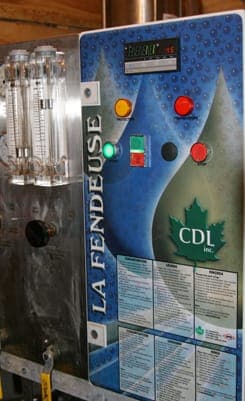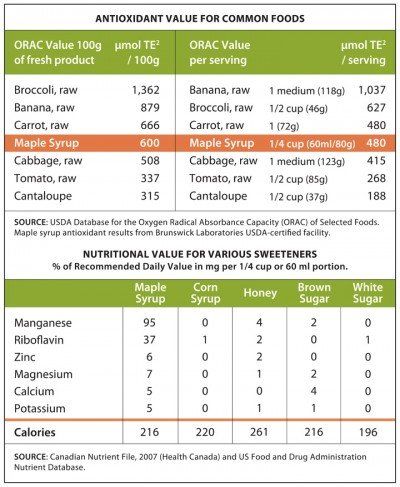Nutritional Info
Pure Vermont Maple Syrup

Reverse osmosis equipment used to remove water from pure maple sap gathered on the Bushee Family Maple Farm.
Vermont's law is that Vermont maple syrup should not contain any additivies. Our pure Vermont Maple Syrup meets the state's high standards of quality, purity and density.
Some product labels may contain "all natural", so be sure to check ingredients. Often a product labeled maple syrup is one that isn't pure maple syrup. Things to look for when buying maple syrup:
• Closely check the nutritional value of the product.
• Look for mention of rice syrup, corn syrup, maple flavoring.
• Look for the percentage of maple syrup used.
• Look for mention of artificial coloring and preservatives.
If you see any of the above listed on the product label, you can bet it's NOT pure Maple Syrup.
If you're curious about the nutritional value of pure Vermont Maple Syrup, the table below shows the minerals and vitamins found in maple syrup including amounts of calcium and potassium in various sweeteners.
Nutritional Value
Pure maple syrup contains an abundant amount of minerals such as calcium, manganese, potassium and magnesium. And just like broccoli and bananas, it’s a natural source of beneficial antioxidants.
Antioxidants have been shown to help prevent cancer, support the immune system, lower blood pressure and slow the effects of aging. Maple syrup is also a better source of some nutrients than apples, eggs or bread. It’s more nutritious than all other common sweeteners, contains one of the lowest calorie levels, and has been shown to have healthy glycemic qualities.
Maple syrup was the original natural sweetener. Native Peoples in North America were the first to recognize 100% pure maple syrup as a source of nutrition and energy. Since then, researchers have been documenting that maple syrup has a higher nutritional value than all other common sweeteners. In addition, researchers have found that pure maple syrup contains numerous phenolic compounds, commonly found in plants and in agricultural products such as blueberries, tea, red wine and flax-seed. Some of these compounds may benefit human health in significant ways.

